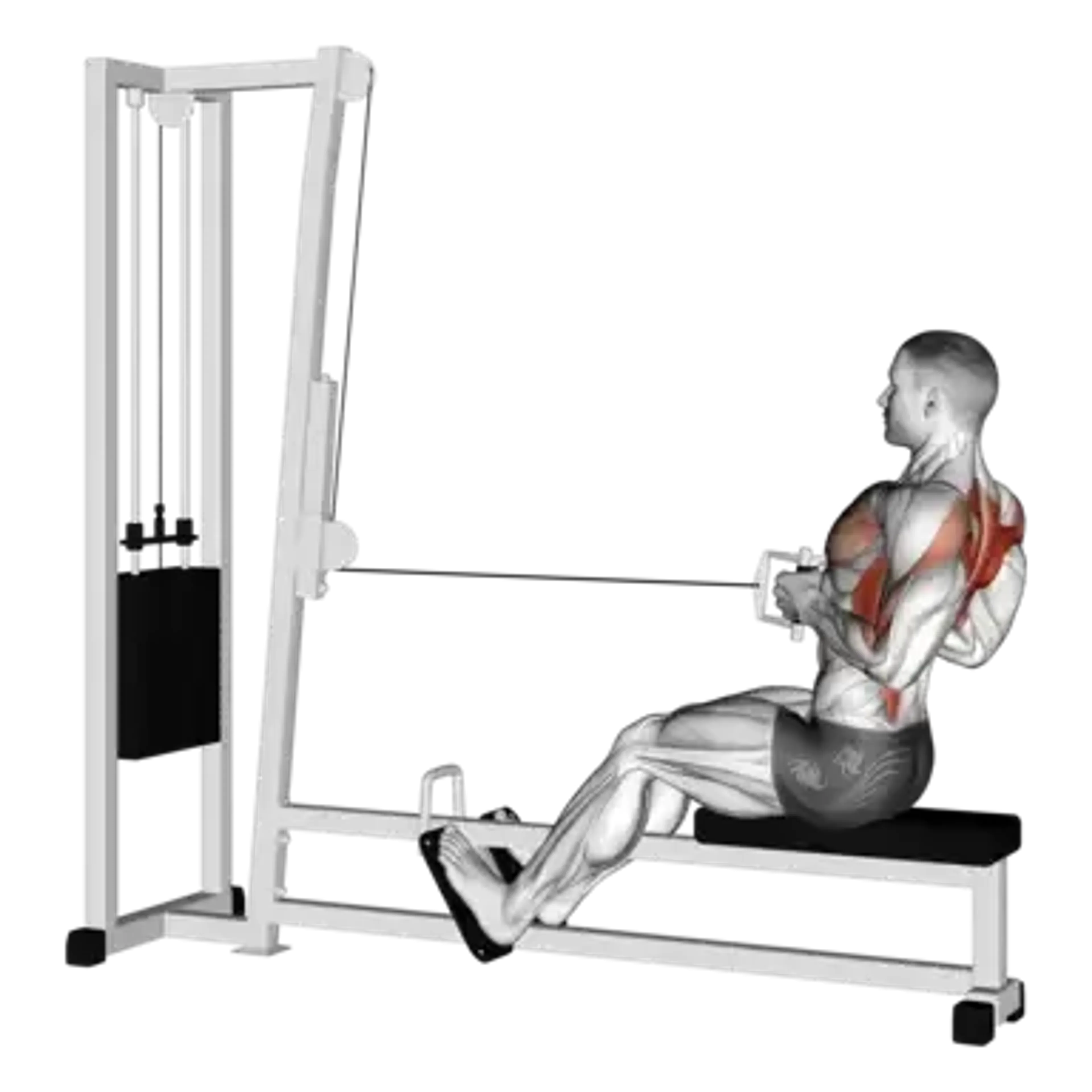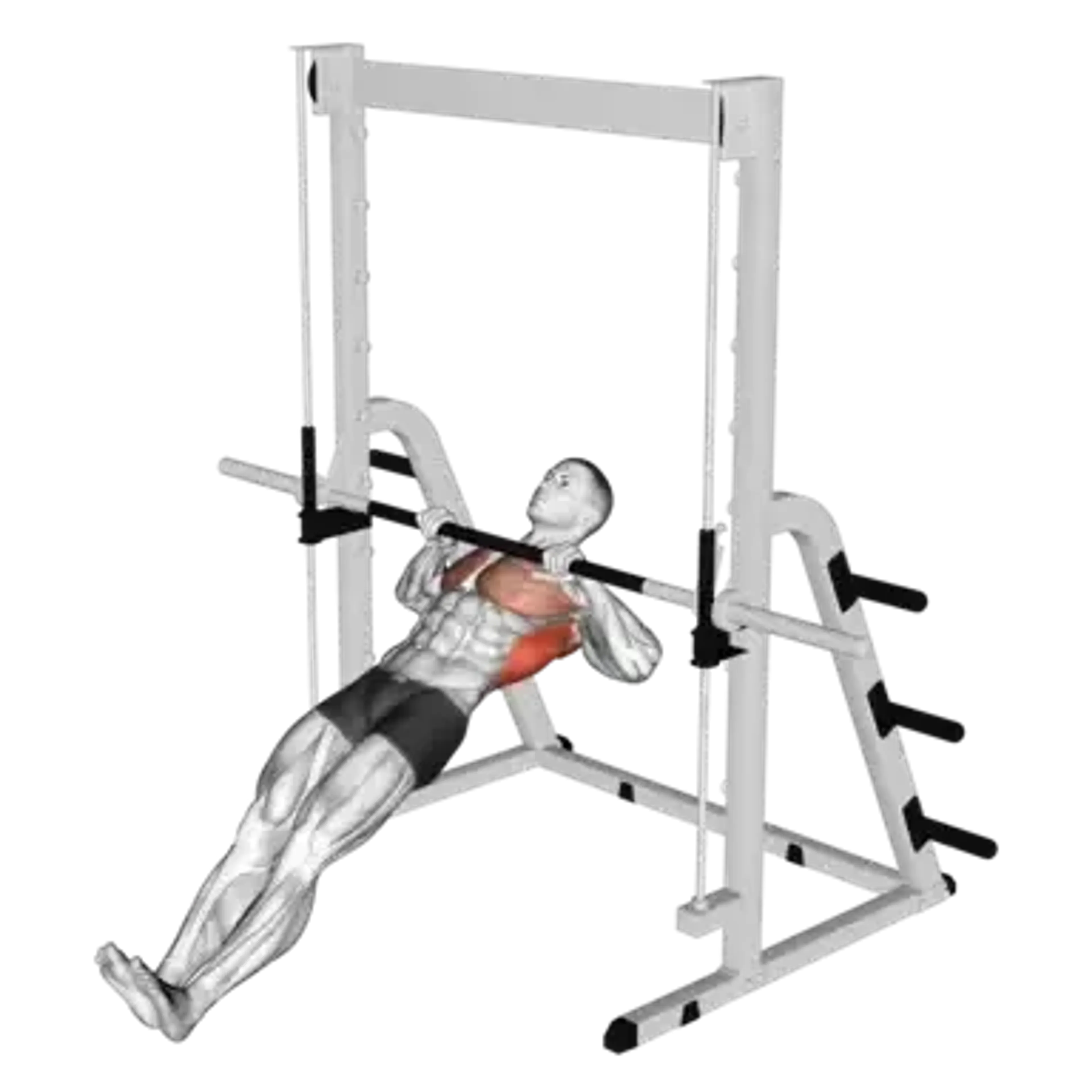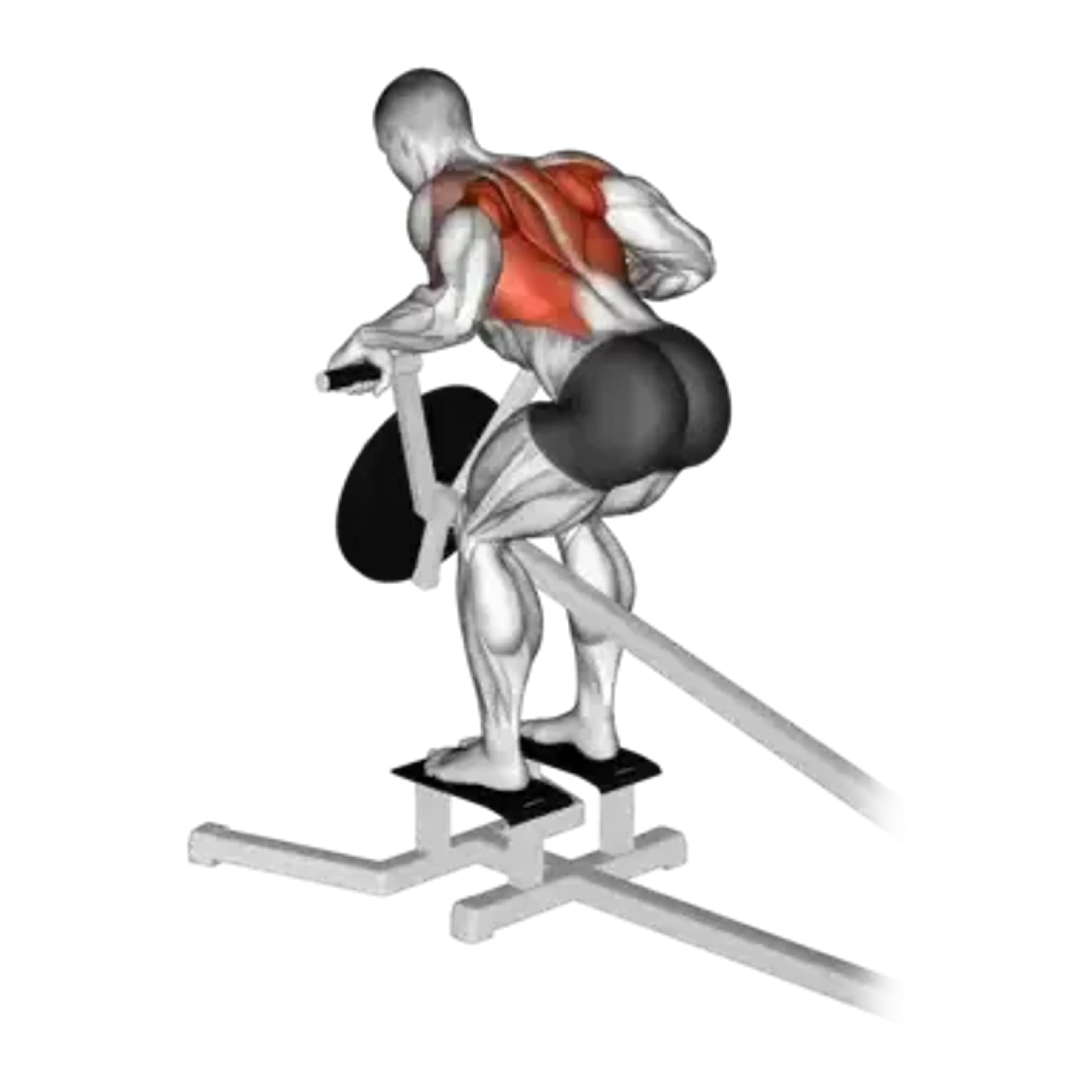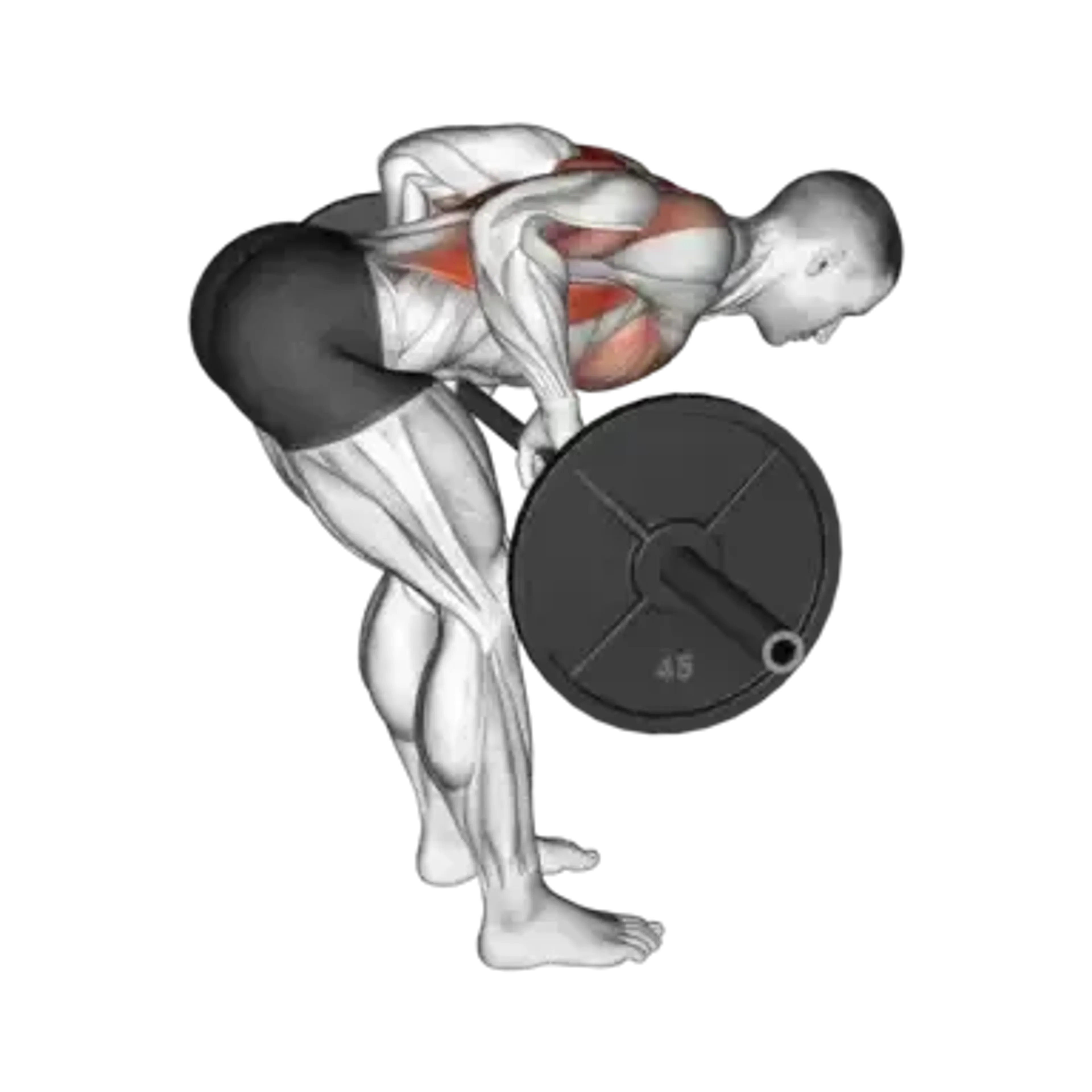Band Seated Row (Straight Back)

Overview
- Primary Focus:
- Back.
- Equipment:
- Resistance bands.
- Difficulty:
- Beginner.
General Information
Band Seated Row (Straight Back) is a compound exercise that primarily targets the back and also engages the biceps and rear delts. It is a beginner-level movement that builds pulling strength and postural control with low joint stress.
This variation works well at home or in the gym when machines are unavailable. Bands provide accommodating resistance, emphasizing the squeeze at peak contraction and smooth tension throughout the range.
Use it for hypertrophy, activation before heavier rows, or as an accessory on upper-body days. Keeping a tall torso and neutral spine helps target the mid-back without loading the lower back excessively.
Muscles Worked
- Latissimus Dorsi
- Primary
- Lower Trapezius
- High
- Rhomboid Major
- High
- Biceps Brachii
- Medium
- Deltoid
- Medium
- Erector Spinae
- Medium
- Teres Major
- Medium
- Brachialis
- Low
- Brachioradialis
- Low
- Infraspinatus
- Minimal
Instructions
- Sit tall with legs extended or slightly bent, chest up, and a neutral spine.
- Loop the band around your feet or a sturdy anchor at mid-shin height and hold the ends evenly.
- Set shoulders down and back, ribs stacked over pelvis, and brace lightly.
- Row the handles toward the lower ribs, leading with elbows close to the torso.
- Pause briefly and squeeze the shoulder blades together without shrugging.
- Control the return until your elbows are straight, keeping tension on the band.
- Maintain a straight back throughout; do not lean or rock for momentum.
Common Mistakes
Injuries
Band Seated Row (Straight Back) is a low risk exercise when performed with proper technique.
Common strain points include the lower back and the front of the shoulders if you round or shrug. Keep the spine neutral, ribs stacked, and avoid pulling past a comfortable range to reduce stress.
Manage load by choosing a lighter band or shortening the range. If one shoulder feels irritated, use a neutral grip and slow the tempo to emphasize control and scapular retraction first.
Stop if you feel sharp pain, radiating symptoms, or loss of grip strength that does not improve with rest between sets.
Alternative Exercises
Frequently Asked Questions
- Q: How should I anchor the band?
Loop it around your feet or a sturdy, non-movable anchor near mid-shin height. Ensure both sides are even to keep the pull symmetrical.
- Q: How many reps and sets work best?
Use 2-4 sets of 10-20 reps, stopping 1-3 reps shy of failure to maintain form and a quality squeeze at peak contraction.
- Q: What should I feel working most?
You should feel the mid-back and lats doing most of the work, with the biceps assisting. Think about bringing the elbows back and squeezing the shoulder blades together.
- Q: How do I progress this over time?
Progress by using a thicker band, moving farther from the anchor to increase tension, or adding a longer pause at the peak contraction.
Overview
- Primary Focus:
- Back.
- Equipment:
- Resistance bands.
- Difficulty:
- Beginner.




